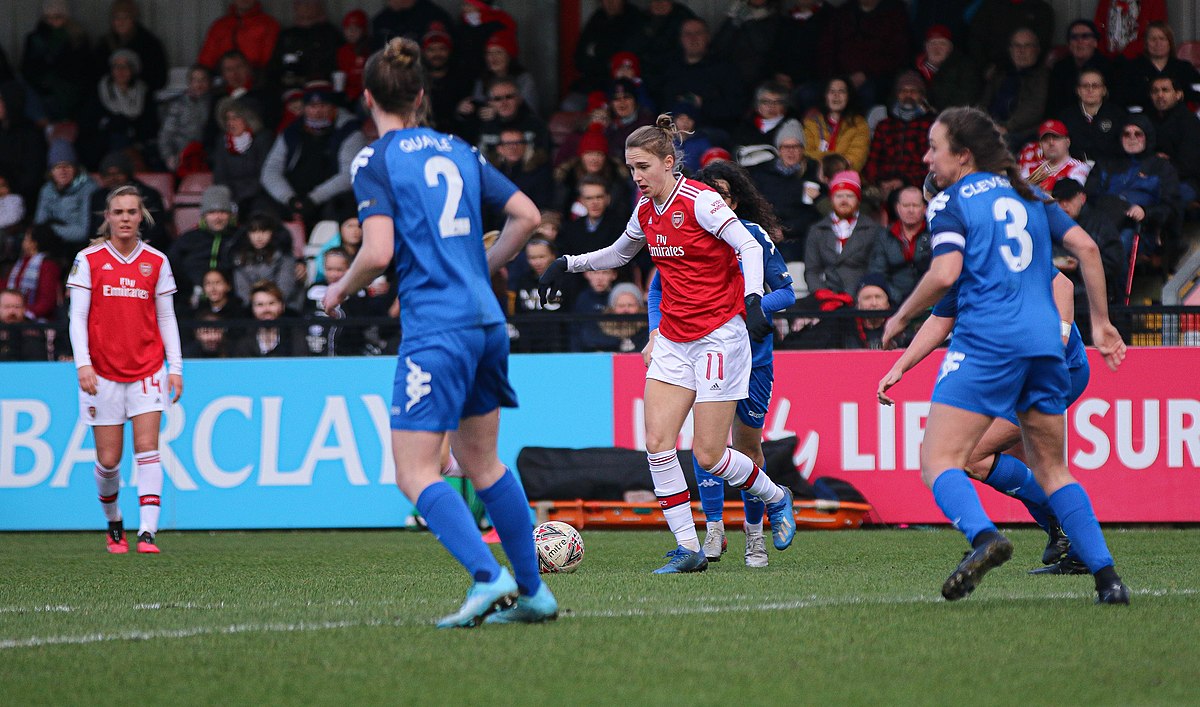Women’s Super League ‘landmark’ broadcast deal: the next big step?
The BBC and Sky have officially agreed a deal to air Women’s Super League games on TV from next season in a three-year broadcast agreement reportedly worth £7m-£8m per season.
This has been described as a “landmark” deal for the landscape of women’s football moving forward, prompting the question: how big an impact will this have on not only the money involved in the women’s game, but also the perception of the female version of the sport?
According to the terms of this agreement, the BBC will broadcast 22 live matches, with a minimum of 18 of those games aired on BBC One or Two.
Sky Sports, the paid service, will cover up to 44 matches screened across the Main Event, Premier League and Sky Sports Football channels, as per BBC’s report on the deal.
Any matches not streamed by these two services will be aired live on FA Player.
Kelly Simmons, the FA’s director of women’s professional football, commented “This feels like one of those real step-change moments for the women’s game.
“The work we do now will be to project those future revenues down the line. We always said to the clubs to believe and invest and now this will be the start of seeing that there’s an ability for the game to take profits and [move away from] reliance, long term, on the men’s game.”
There has been a common perception that the women’s game is of a decreased quality when compared to the men’s game, and a lack of funding certainly hasn’t done that view any harm.
However, this investment in the future of women’s football could be a real game changer for the sport, and will likely alter popular opinion of the WSL in particular.
Chelsea manager Emma Hayes has chipped in on the conversation, stating “It’s not just one club, one person, one entity, this is all about the whole and it’s a real celebration for women’s football and everyone involved in it.”
The FA has declared that this deal will bring in audience figures unseen in any other women’s sport, with the expected viewership said to be “significantly above” the most “high-profile” women’s domestic sport leagues around the world.
The women’s game in England has definitely seen a significant rise in recent years, particularly following the Women’s World Cup a few years ago, and the WSL has managed to attract several big name players, including the likes of Sam Mewis and Rose Lavelle (Manchester City), Christen Press (Manchester United) and Tottenham’s loan signing of Alex Morgan.
With more investment and a bigger audience … aspiring female footballers will be more enticed to explore the sport as a long term option
This deal will likely see a further influx of overseas female professionals, and WSL teams’ performance in continental competitions such as the UEFA Women’s Champions League will surely improve drastically.
Further to this, wider broadcasting of the women’s game will encourage a greater cash injection into the sport, and will also draw the attention of more young females who love the sport, but currently find it inaccessible or unviable as a career choice.
With more investment and a bigger audience, though, these aspiring female footballers will be more enticed to explore the sport as a long term option, and this can only serve to increase the sport’s popularity and quality.
As Simmons stated, the league is “going to be hugely visible next season. I’m sure it’ll inspire thousands and thousands of girls to play the game so I just can’t wait”.
Kathryn Swarbick, commercial and marketing director the FA, added to Simmons’ optimistic comments: “This is a moment to celebrate – a watershed moment in the WSL future – with just an incredible outlook.
“That reach, combined with this huge investment into the game, makes us really confident that this is going to be a huge leap forward in achieving our ambition of having the world’s best domestic women’s professional league.”
And this deal is certainly a step towards that ambition – if agreements such as this can keep being made, then sponsorship income will increase, and the finances of the women’s game here in England will grow quickly, not only attracting global talents, but also encouraging more girls to see football as a potential career option.
As such, this multi-million pound broadcast deal is a huge step in the right direction for the future of the women’s game, not only in England, but globally.
The future of female professional football seems bright, and though there is certainly a great deal of work to be done before it reaches the numbers of the men’s game, it is an exciting time for fans of women’s football as they look to improve the sport as a whole and make it more accessible for young female athletes.

Comments